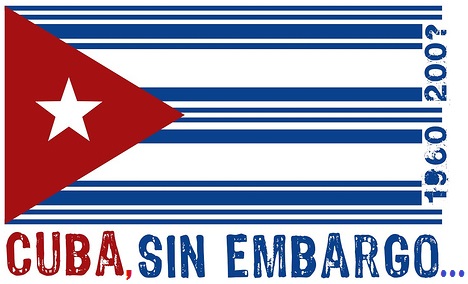
In recent years, every time the issue of Cuba comes up, whether in relation to the transition to democratic freedoms or to other topics of a political nature, from any place in the world, our repressed national island passions are unleashed. It doesn’t matter whether it’s about a concert at the Civic Plaza** in Cuba, such as the one held in 2009 by Juanes and other artists, or, as now, it’s about a letter with proposals to the President of the United States on Economic Issues.
The reactions for and against, beyond the extremes, show a plurality of opinions from Cuba’s emerging civil society. And this is logical, since democracy is essential plural, as the peaceful opposition is plural, in opposing the only thought embodied by the half century military dictatorships that remains in power in Cuba.
The letter referenced, signed by forty Cuban and American personalities based outside the island, invited President Barack Obama to east some of the restrictions imposed by the American embargo on Cuba. This set of long-standing laws, in our opinion and in the opinion of the majority of the countries of the international community, have been counterproductive for the Cuban people in every sense, justifying and strengthening in different ways the human rights violations of the Castro dictatorship, such that maintaining it is a difficult case to defend.
With regards to the text of the missive, focused primarily on aspects of the market and not on human rights, at least places in the public arena the agenda of the necessary and urgent changes in our archipelago.
The changes produced so far, determined by the new guidelines of the Communist Party and the Revolution, clearly point to an economy of state capitalism which guarantees the dynastic succession, under the processes of the so-called 21st Century Socialism. Thus they flirt, supposedly through the markets, with the merchants. But, as we already know from experience, real socialism can only be patched up, and participative democracy is the only form which is truly perfectible, and it is in that direction, without a doubt, that we must turn our course.
In December 1996, the Cuban Democratic Project (Proyecto Demócrata Cubano, or Prodecu) in an open letter to the U.S. government states: “It is a fact that the political acts of the leaders of the United States of America have influences and, at times, determined, the history of the Cuban people over time. The last four decades have not escaped this reality.”
And it asked that, “the authorities of the government of United States of American accept the proposals of the Cuban government to initiate unconditional talks with the purpose of negotiating the Cuban-U.S. dispute.”
It is this formula, of negotiating, that is the only one that can bring us peacefully to democracy, justice, and the rule of law. The essential elements are synthesized in the letter from the forty.
Translator’s notes:
*The title “Singing the forty” is a play on words. In Spanish the expression (from a card game) means “to read the riot act” or “to set the record straight”; Rafael is also referring to the forty (in fact, 44) signers of the letter to Obama.
**”Civic Plaza” is the original name of what is now called the Plaza of the Revolution.
10 June 2014
